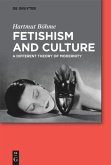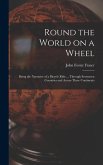Elisabet Delbrück (1876-1967) was one of a number of Germans who came to New Zealand in the late 1930s. Unlike most, she had not intended to emigrate but was touring the country when World War II broke out. She was at first forbidden to leave and then chose to remain in Wellington. Her thirty years in Mahina Bay on Wellington harbour had a profound effect on all who knew her. This study aims to discover why she was so remarkable. It explores her early life, her marriage into a prominent German family and her qualification as an artist. She turned this into a profession, teaching and exhibiting on five continents in the 1920s and 1930s. She always travelled alone, observing the customs and beliefs of the people she met. In Australia and New Zealand in 1938 and 1939 she was wrongly suspected of spreading Nazi propaganda. Her story is also the story of a heroic group of Wellingtonians who helped her in the 1940s and valued her friendship till her death.
Bitte wählen Sie Ihr Anliegen aus.
Rechnungen
Retourenschein anfordern
Bestellstatus
Storno








